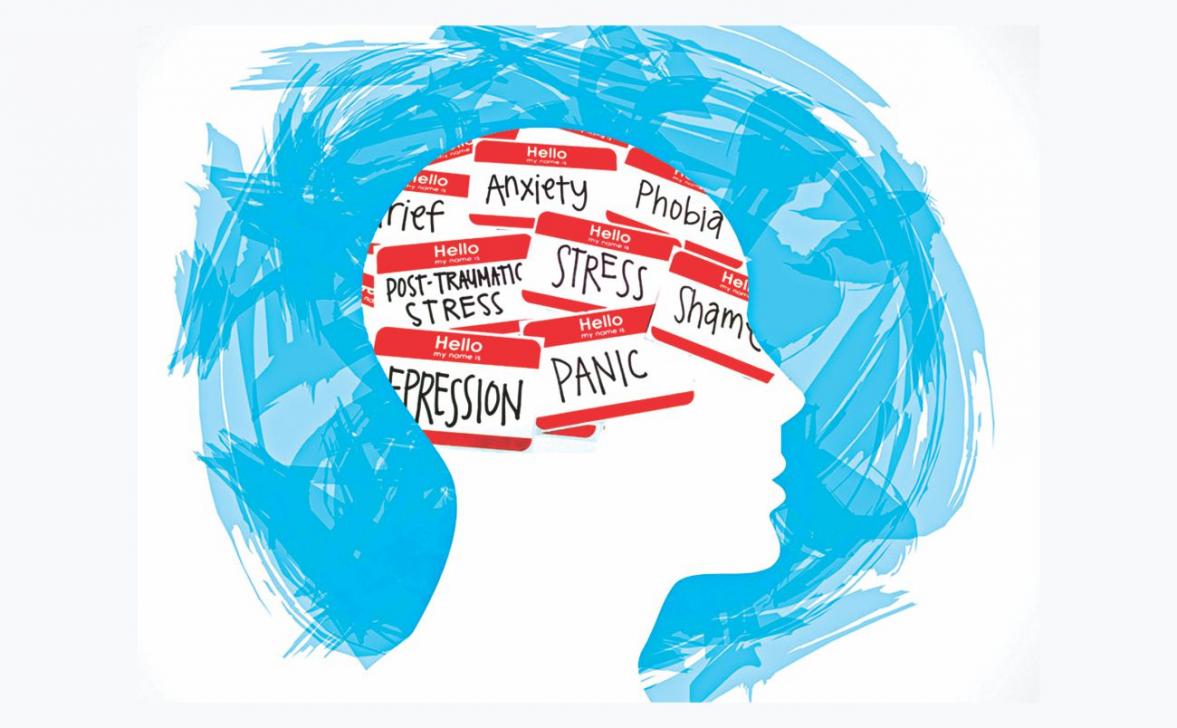Mental health is one of the most neglected areas of health. “Mental health is a state of mental well-being in which people cope well with the many stresses of life, can realize their own potential, can function productively and fruitfully, and are able to contribute to their communities.” Mental health has large intrinsic value in itself as it relates to the very core of what actually makes us human such as the way we interact, connect, learn, work and experience suffering and happiness.
As it is evident from the current situation that coronavirus disease (Covid-19) continues to take lives across the world, there arises another public health crisis that is regrettably rearing its ugly head. Perhaps this new danger unleashes more death and despair than the coronavirus itself. Even, before the pandemic the mental health was not promised in our country.
There is a widespread Psychological distress in populations. Many people are distressed due to the immediate health impacts of the virus and the consequences of physical isolation. Many are afraid of infection, dying, and losing family members. Individuals have been physically distanced from loved ones and peers. Millions of people are facing economic turmoil having lost or being at risk of losing their income and livelihoods. Frequent misinformation and rumors about the virus and deep uncertainty about the future are common sources of distress. A long-term upsurge in the number and severity of mental health problems is likely. Emotional difficulties among children and adolescents are exacerbated by family stress, social isolation, with some facing increased abuse, disrupted education and uncertainty about their futures, occurring at critical points in their emotional development. Women are bearing a large brunt of the stress in the home as well as disproportionate impacts more generally.
Starting from autism and intellectual disability in childhood, leading all the way through depression, anxiety, substance abuse, and psychosis in adulthood to dementia in old age. When put together these mental health disorders account for 15% of the total global burden of diseases. According to the World Health Organization (WHO) report, India has one of the largest population suffering from one form of mental illness or the other. It won’t be an exaggeration to state that India indeed is staring at a mental health epidemic.
Beyond the staggering numbers, it is important to understand that there lies a lacuna in how mental health is dealt within our country. Lack of awareness about the issue, the stigma associated with it, lack of trained professionals, inadequate funding and the low priority given in the healthcare budget are the reasons why people coping with mental health issues fail to receive the adequate amount of timely treatment. If merely making policies would have helped people, the issue of mental health would have been solved long ago.
Interventions in the form of medicine, psychological and social help, can make a huge difference. More than 80% of people do not seek any professional help in India. Talk to anyone you know who has been through this and you’ll hear stories about shame, suffering, discrimination, and stigma.
There is a shortage of mental healthcare workers in India. According to the World Health Organisation, in 2011, there were 0·301 psychiatrists and 0·047 psychologists for every 100,000 patients suffering from a mental health disorder in India. A community-based solution inspired by Asha workers model can be adapted to serve the mentally ill population efficiently. Also, more and more professionals should be trained in this field to decrease the ever increasing gap.
According to the Human Right Watch, only 0.06 per cent of India’s health budget is devoted to mental health and available data suggests that state spending in this regard is abysmal. Time and again, the government has only made hollow promises and the aforementioned data does not really paint a rosy picture. If only India spent sufficient amount on primary level care of the mentally ill patients, the number of deaths caused by ignorance will reduce drastically.
People suffering from any kind of mental health issue are considered ‘lunatics’ by the people due to the lack of awareness, ignorance and blatant apathy. This leads to a vicious cycle of shame, suffering and not to mention, isolation of the patient. To end the stigma, there is a need to empower the people suffering from various mental health issues. Steps can also be taken to connect the people suffering from such diseases with each other by forming a network, such that no one feels alienated or alone. Moreover, in togetherness, these people would find the courage and the will to fight. Furthermore, to do away with the stigma once and for all, people experiencing mental health problems should get the same access to safe and effective care as those with physical health problems. In a step towards reducing myths and stigma associated with mental illness, it must be put under the ambit of life insurance.
Steps should be taken to train and sensitize the community/society to deliver immediate mental healthcare intervention to the patients. Nothing else but timely intervention, awareness about the issue, availability of professional help and adequate policies will bring down the numbers. It is thus imperative to understand that people with mental illness deserve to live their lives with dignity and confidence. Sustaining and strengthening mental health services and programmes must be a priority to address current and future mental health needs and help prevent a rise in mental ill health in the future. The response to the pandemic is an opportunity to improve the scale and cost-effectiveness of various mental health interventions.
By:
Priyanka Singh
LLM(National Law University, Odisha)



In this pandemic people are losing there jobs and fighting economical and health crisis.
your article is helpful in this Pandemic for mental stability.
Thank you Ankit.
The place where world is standing today is very crucial and its very important to maintain mental balance, coz there is no process to measure the mental illness .
Everyone must go through this article for a mental medicine that you have given nicely 👍🏻